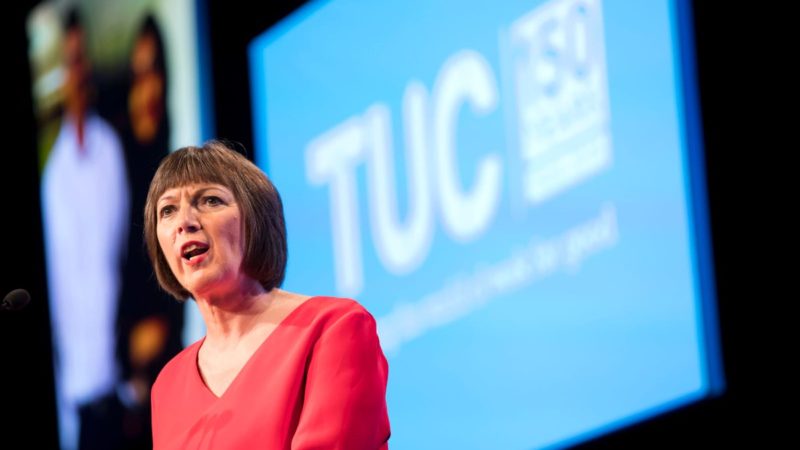
From the battle of Cable Street and the fight against Nazism to the struggle against apartheid, trade unions have a proud history of fighting the politics of hate. But we can’t take on the 21st-century global far right using 20th-century methods. It’s time to write a new chapter.
Trade unions are the voice of working people in all our diversity. So we have a special responsibility to step up. To do that, we need to understand how the far-right has mainstreamed its messages, worked across national borders and used online spaces to organise, recruit and promote its hateful ideologies.
That’s why we’ve launched a new report, put together by Trademark Belfast, on effective strategies for tackling right-wing extremism in our workplaces and communities. It is aimed at trade unions, organisers and the wider labour movement.
Internationalism
One of the key takeaways is about using our tradition of internationalism to out-organise the far right globally. Where they are in power – as in Hungary, Poland, Turkey, Brazil and Colombia – or are influential, the far-right has been quick to exploit a decade of crisis, austerity and insecurity. We see clear links between exploitative economies and the abuse of workers’ rights, and far-right rhetoric and increasing authoritarianism.
But around the world, unions are leading successful, progressive coalitions against the far-right. Some engage employers in the struggle against extremism. Other unions work closely with one another across borders where firms have sites in their respective countries. The far-right has grown stronger by working across national borders. So our response must be as firmly rooted in internationalism and solidarity.
Taking the fight to the workplaces
We must leverage our industrial power to tackle the influence of the far-right in the workplace. That’s why the TUC and Unite, alongside our sister German unions DGB and IG Metall, are developing a programme of practical workplace action to counter the far-right, working with companies that have sites in both the UK and Germany.
Taking the fight online
We need a smart response to the far-right’s menacing presence and adept use of new technologies. We will start by mapping the influence of far-right narratives and networks online, analysing geographic and demographic data, and identifying key influencers in far-right networks. We need to skill up trade unionists to spot and stop attempts to bring harmful ideas into our workplaces and communities.
A new deal for working people
Working people have been failed in the UK and elsewhere by stagnant wages, insecure work and poor working conditions – all of which have unleashed huge inequality. These are the political choices of governments that do not have the interests of working people at heart. And, in the shadow of the pandemic, we face again the spectre of mass unemployment – a fertile recruiting ground for extremism.
The priorities for unions are clear. We must rebuild our capacity for political education, to help a new generation of reps and activists defeat attempts to divide working people from one another. We must redouble our efforts to win a new deal for working people, and a fairer, greener, more equal society. Above all, we need to build solidarity and workers’ power. Let’s resist all attempts to divide us: workers are always stronger together.




More from LabourList
‘Factionalism at the top is weakening Labour – and handing a gift to Reform’
‘Europe must stand strong on its own as US security guarantees grow conditional’
‘Tackling poverty should be the legacy of Keir Starmer’s government’